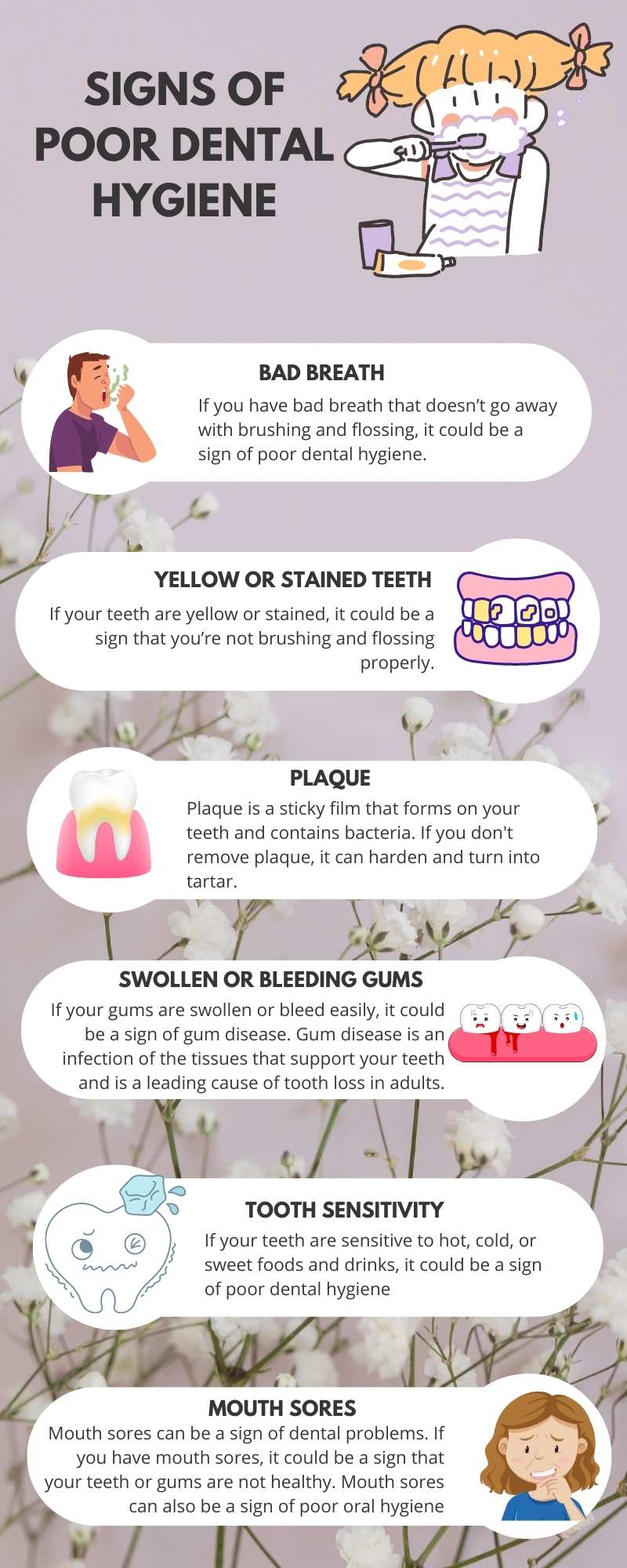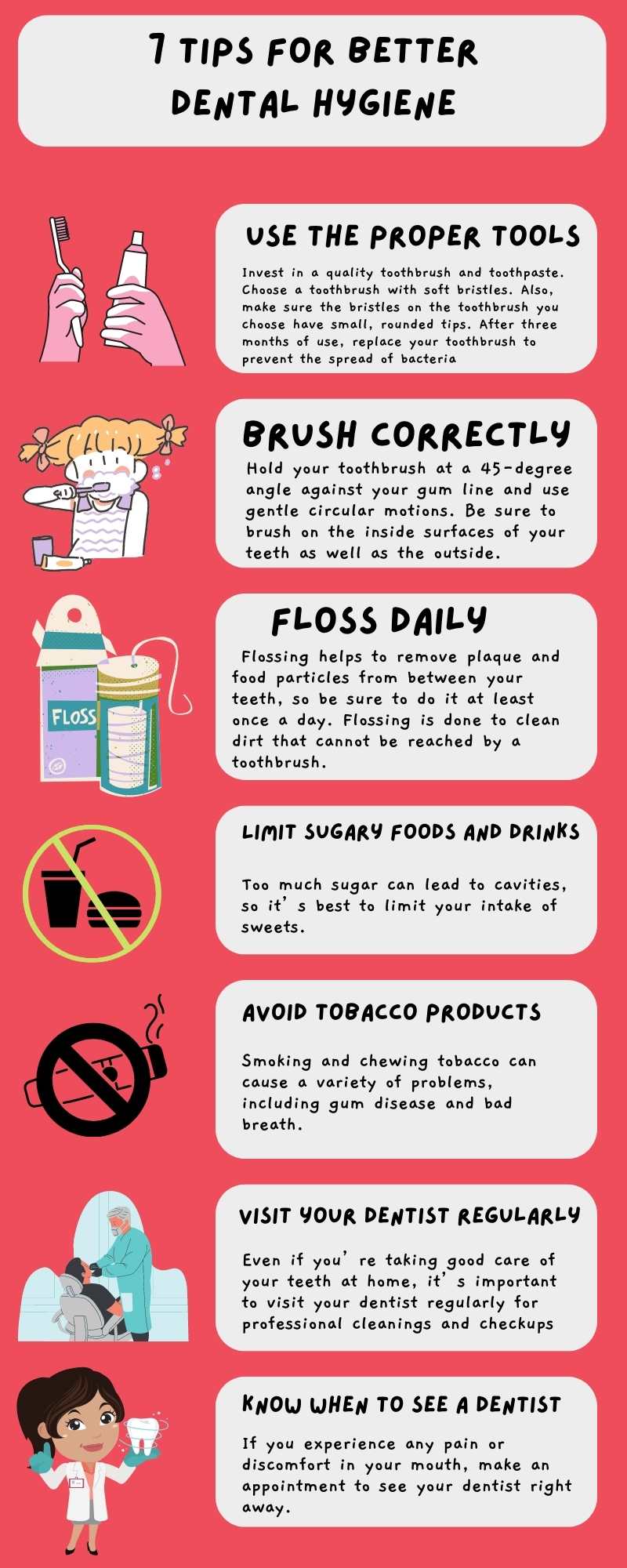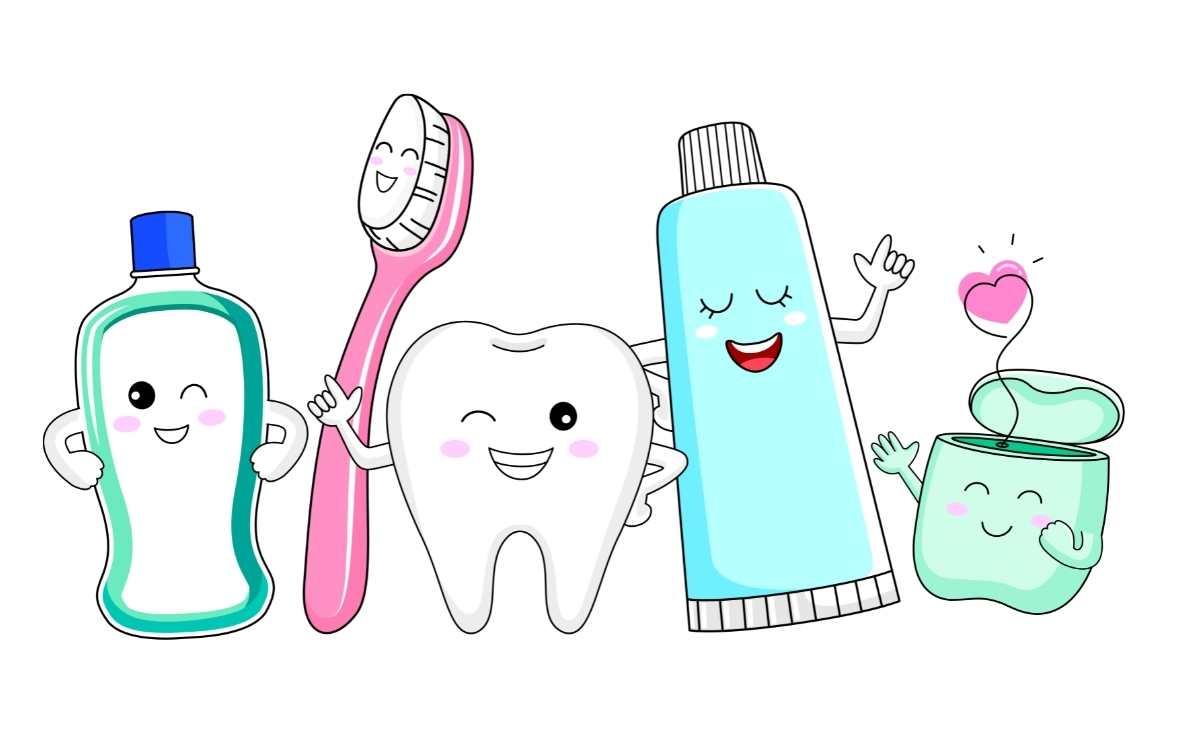Dental hygiene is an important aspect of overall health, yet poor dental hygiene is a widespread problem.
According to the Centers for Disease Control and Prevention (CDC), over one-third of adults in the United States have periodontitis, a serious form of gum disease.
Poor dental hygiene can lead to a build-up of plaque and tartar on teeth, which can eventually lead to tooth decay and gum disease.
In addition, poor dental hygiene can also cause bad breath.
While poor dental hygiene is often caused by a lack of access to proper dental care, it can also be due to a lack of knowledge about proper oral care.
By understanding the importance of dental hygiene and taking steps to improve one’s own oral care, it is possible to reduce the risk of developing dental problems.
What Is Poor Dental Hygiene And Why Is It A Problem
Many people do not realize the importance of oral hygiene and the role it plays in overall health.
Poor dental hygiene can lead to a number of problems, including bad breath, gum disease, and tooth decay.
When plaque builds up on teeth, it provides a perfect environment for bacteria to thrive.
These bacteria can then enter the bloodstream and cause infections elsewhere in the body.
Additionally, research has shown that gum disease is linked to a number of serious health conditions, such as heart disease, stroke, and diabetes.
It is important to brush and floss daily and visit the dentist regularly in order to maintain good oral hygiene and avoid these problems.
The Signs Of Poor Dental Hygiene
Good dental hygiene is essential for overall health and well-being. While poor dental hygiene can lead to a number of problems, including cavities, gum disease, and bad breath, there are often warning signs that can alert you to the need for improved oral care.
8 Signs Of Poor Dental Hygiene

- Bad Breath: If you have bad breath that doesn’t go away with brushing and flossing, it could be a sign of poor dental hygiene.
- Yellow or Stained Teeth: If your teeth are yellow or stained, it could be a sign that you’re not brushing and flossing properly.
- Plaque: Plaque is a sticky film that forms on your teeth and contains bacteria. If you don’t remove plaque, it can harden and turn into tartar.
- Swollen or Bleeding Gums: If your gums are swollen or bleed easily, it could be a sign of gum disease. Gum disease is an infection of the tissues that support your teeth and is a leading cause of tooth loss in adults.
- Gum Inflammation or bleeding: Gingivitis is a common and early form of gum disease. It causes gums to become inflamed or red and to bleed easily.
- Tooth Sensitivity: If your teeth are sensitive to hot, cold, or sweet foods and drinks, it could be a sign of poor dental hygiene.
- Mouth Sores: Mouth sores can be a sign of dental problems. If you have mouth sores, it could be a sign that your teeth or gums are not healthy. Mouth sores can also be a sign of poor oral hygiene.
- Difficulty Swallowing: If you have trouble swallowing, it could be a sign that your teeth and gums are not as healthy as they should be. When you have difficulty swallowing, it means that your mouth is not producing enough saliva, which can lead to gum disease and other dental problems.
Causes Of Poor Dental Hygiene
Although good dental hygiene is essential for overall health, many people struggle to maintain it. There are a number of reasons why this may be the case.
First, some people simply do not have access to the resources they need, such as toothpaste, toothbrushes, and floss.
Others may find it difficult to keep up with a good oral hygiene routine because of physical or mental limitations.
In some cases, poor dental hygiene can be the result of a lack of education about its importance.
7 Causes Of Poor Dental Hygiene
1. Not brushing regularly: Brushing twice a day is essential for keeping your teeth and gums healthy. However, many people do not brush regularly or do not brush for long enough. As a result, plaque and bacteria build up on the teeth and gums, leading to oral health problems. Brushing once a day simply isn’t enough to remove all of the plaque and bacteria that can build up in your mouth over the course of a day. Make sure to brush your teeth at least twice a day, preferably in the morning and at night.
2. Not flossing: Flossing helps to remove plaque and bacteria from between the teeth, where a toothbrush cannot reach. Without regular flossing, these substances can harden into tartar, which can damage the gums and lead to tooth decay. Be sure to floss at least once a day, ideally after brushing your teeth at night.
3. Using the wrong toothbrush: A soft-bristled toothbrush is gentler on the gums than a hard-bristled brush. In addition, an electric toothbrush can be more effective at removing plaque than a manual brush. Choose a toothbrush that is right for your needs in order to keep your mouth healthy.
4. Busy Schedules: With work, school, and other activities, it can be difficult to find time to brush and floss regularly. However, it is important to make oral hygiene a priority in order to prevent dental problems.
5. Eating sugary foods or acidic foods: Sugary foods and drinks can damage the teeth and lead to cavities. Acidic foods and drinks can also wear down the enamel on the teeth, making them more susceptible to decay.
To protect your teeth, limit your intake of sugary foods or acidic foods and brush them soon after eating them.
6. Smoking/chewing tobacco: Smoking is a major risk factor for gum disease and tooth loss. Chewing tobacco can also damage the teeth and lead to oral health problems. If you smoke or chew tobacco, quitting is the best way to protect your oral health.
7. Lack of Proper Education: One of the main causes of poor dental hygiene is a lack of education about its importance. Many people do not realize how important it is to brush and floss regularly. As a result, they do not make oral hygiene a priority, and their teeth and gums suffer as a result.
8. Financial constraints: Dental care can be expensive, and many people cannot afford to see a dentist regularly. As a result, they may only see a dentist when they have a dental emergency, such as a toothache or a broken tooth. By the time they see a dentist, their oral health may have already deteriorated significantly.
9. Physical or mental limitations: Some people may find it difficult to brush and floss regularly because of physical or mental limitations. For example, people with arthritis may have difficulty holding a toothbrush or flossing. In addition, people with dementia or Alzheimer’s disease may not be able to remember to brush and floss their teeth.
10. Fear of the dentist: Many people avoid going to the dentist because they are afraid of the pain or the cost. As a result, they do not get the dental care they need and their oral health suffers as a result.
Proper Dental Hygiene For A Adults
Dental hygiene is important for many reasons. It helps to prevent tooth decay, gum disease, and bad breath. It also helps to keep your teeth looking their best. There are a few simple steps you can take to improve your dental hygiene.
7 Tips For Better Dental Hygiene

1. Use the proper tools-
Invest in a quality toothbrush and toothpaste. There are many different types of toothbrushes on the market, so find one that is comfortable for you to use. As for toothpaste, look for one that contains fluoride.
Choose a toothbrush with soft bristles. Also, make sure the bristles on the toothbrush you choose have small, rounded tips. After three months of use, replace your toothbrush to prevent the spread of bacteria.
2. Brush correctly- Hold your toothbrush at a 45-degree angle against your gum line and use gentle circular motions. Be sure to brush on the inside surfaces of your teeth as well as the outside.
3. Floss daily- Flossing helps to remove plaque and food particles from between your teeth, so be sure to do it at least once a day. Flossing is done to clean dirt that cannot be reached by a toothbrush.
4. Limit sugary foods and drinks- Too much sugar can lead to cavities, so it’s best to limit your intake of sweets.
5. Avoid tobacco products- Smoking and chewing tobacco can cause a variety of problems, including gum disease and bad breath.
6. Visit your dentist regularly- Even if you’re taking good care of your teeth at home, it’s important to visit your dentist regularly for professional cleanings and checkups.
7. Know when to see a dentist- If you experience any pain or discomfort in your mouth, make an appointment to see your dentist right away.
By following these simple tips, you can maintain good dental hygiene and keep your smile looking its best.
Benefits Of Good Dental Hygiene
Most people are aware of the importance of good dental hygiene, but there are many benefits that go beyond a sparkling smile.
For one, brushing and flossing help to remove plaque, a sticky film of bacteria that can cause tooth decay and gum disease. In addition, good dental hygiene helps to freshen breath and prevent bad breath.
Furthermore, good dental hygiene can help to prevent other health problems such as heart disease and stroke.
This is because plaque buildup in the arteries can lead to blockages and put extra strain on the heart.
Therefore, it is clear that good dental hygiene is not just important for oral health, but for overall health as well.
